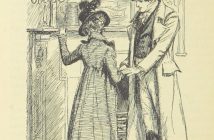With its blockbuster Hollywood biopic only recently released to critical acclaim, Straight Outta Compton tells the rise and fall of the “world’s most dangerous group,” NWA.
For all those who have seen the film or are fans of the late 80s, early 90s gangsta rap, hip hop group, then its significance not only to the music industry but African American culture is well understood. For those who haven’t, rest assured NWA’s place in Black History Month is well earned.
NWA arose during a period of East Coast dominance in the US rap scene; LL Cool J, Salt N Pepa and Public Enemy were amongst those East Coast acts that enjoyed commercial success. NWA also rose during a period of heightened tensions between the impoverished suburban black community and the police force.
At the time the nation was gripped in what has been called the ‘crack epidemic’. The introduction of crack cocaine into America was felt nowhere more prominently than the impoverished African American community. The low-cost, high-profit crack trade spread like wildfire through suburban America. The highly addictive drug devastated the black community, among other crime the homicide rate amongst young black males more than doubled between 1984-1994.
NWA rose then not only to challenge the East Coast rap scene, but to shed light on the lives of so many in America who up until then were widely under-represented.
With their violent and often profane description of street life in the city of Compton, coupled with their ardent condemnation of police brutality and racial profiling, their message permeated through all walks of life in America. But with it came nationwide opposition. From parents all the way up to politicians, NWA made headlines amid accusations of promoting violence towards law enforcement and glorifying gang life. However this level of attention only served to increase their fame.
While the group would ultimately dissolve in 1991, the 1992 LA Riots or the Rodney King riots as they are also known, would for many, symbolise the very message the NWA had come to espouse.
In their relatively short run, NWA had rewritten the rap genre. Rap began to focus on the hardships of the impoverished black Americans: life on the streets, police brutality, gang life and a greater telling of the socio-economic issues that plague America’s dominant minority.
Not only that, but their controversial hit, ‘F**k tha Police,’ has become synonymous with anti-law enforcement protest. This was chanted recently during anti-police protests across America as well as finding continuous reference across popular culture, from music to film.
NWA then can not only be accredited as a massive influence on modern rap but on the modern civil rights movement.
While controversy surrounded the group and now surrounds the film, the legacy left by NWA is more than worthy to be recognised during Black History Month. Just as its founding members are still relevant today, with Dr. Dre and Ice Cube enjoying notable success since the groups dissolution. NWA’s message of the reality of street life and police brutality are also still relevant.




